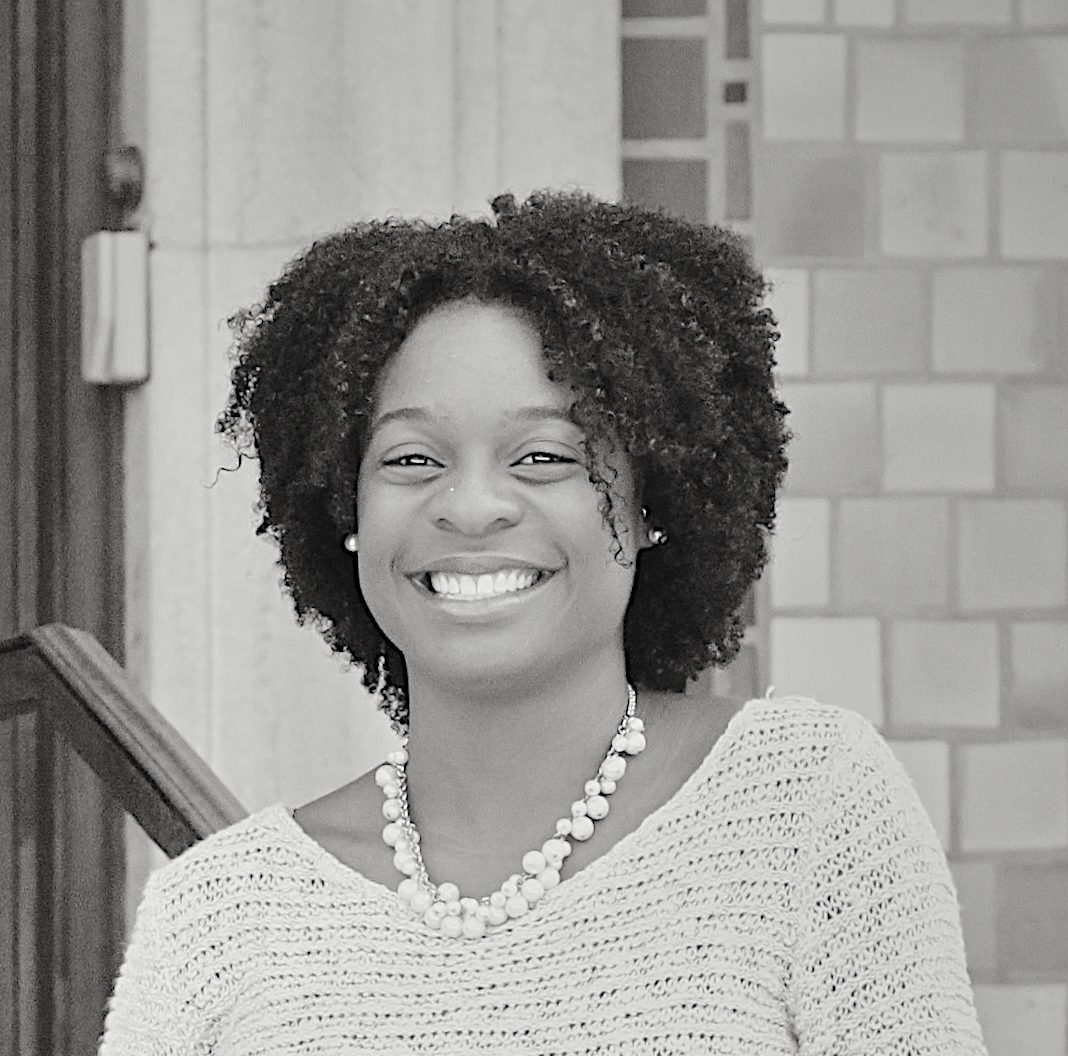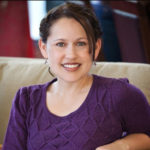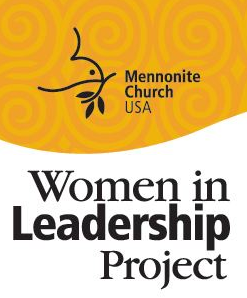The Women in Leadership Project (WLP) is an initiative to empower women, in the fullness of who God created them to be, to live out their call in their local congregations and conferences across Mennonite Church USA and to actively contribute to our shared theology. The WLP works to dismantle patriarchy, in all its forms, within the denomination.
A six-member steering committee guides and contributes to the work of the WLP. In February 2017, three new members accepted the invitation to join the committee, working together with experienced members Erica Littlewolf, Linda Gehman Peachey and Regina Shands Stoltzfus.
 Chantelle Todman Moore is co-founder of unlock Ngenuity a consulting, coaching and therapy business. Chantelle holds a Bachelor of Arts in International Community Development from Oral Roberts University, a Master of Business Administration in International Economic Development from Eastern University. She is passionate about embracing diversity and difference as a gift, seeking justice as a mandate and being moved to act by love. She lives in Philadelphia with her spouse, Sam, and their three daughters.
Chantelle Todman Moore is co-founder of unlock Ngenuity a consulting, coaching and therapy business. Chantelle holds a Bachelor of Arts in International Community Development from Oral Roberts University, a Master of Business Administration in International Economic Development from Eastern University. She is passionate about embracing diversity and difference as a gift, seeking justice as a mandate and being moved to act by love. She lives in Philadelphia with her spouse, Sam, and their three daughters.
As far back as I can remember I have been fascinated by leadership and appreciated the unique perspectives and capacities women can bring to leadership roles. The older I got, the more I craved female mentors and leadership role models, especially within the church, but I was hard-pressed to find them. I was even more hard pressed to find women of color leadership role models and mentors. Not because they didn’t exist, but more because the leadership of women was either not recognized formally or it was suppressed.
As I struggled to shape my leadership desires and opportunities into the leadership models and examples readily available (read: white, western and male), I sensed a growing disquiet. Surely there was more to leadership then striving to lead like these white, male leaders? I am so grateful that my journey and longing to find more authentic and indigenous leadership role models and mentors has indeed been met throughout my life — first through my family members and friends, and later through professors, pastors, supervisors and spiritual mentors that I simply wouldn’t leave alone. I was like the unrelenting widow in scripture who kept arguing with the judge. I wasn’t going to leave these powerful women leaders alone until they mentored me!
I see the Women in Leadership Project as a way to continue to surround myself with powerful women-centered leadership within the church and also as an opportunity to invest back into other women, alongside my coaching practice.
I am excited to see the fruit from this season serving with the Women in Leadership Project and am so grateful for my fellow steering committee members and WLP supporters and collaborators who labor alongside of me in this great and very important work.
 Maribel Ramírez Hinojosa is a clinical psychologist in College Station, Texas. She was born in Nuevo León, México and immigrated to central California in the 1980s where she and her family joined a Mennonite church. Her Anabaptist upbringing and her training as a marriage and family therapist and clinical psychologist were instrumental in developing her passion for peace and justice. She and her husband Felipe have two children, Samuel and Ariana, who keep them very busy. They enjoy traveling, dancing and laughing together.
Maribel Ramírez Hinojosa is a clinical psychologist in College Station, Texas. She was born in Nuevo León, México and immigrated to central California in the 1980s where she and her family joined a Mennonite church. Her Anabaptist upbringing and her training as a marriage and family therapist and clinical psychologist were instrumental in developing her passion for peace and justice. She and her husband Felipe have two children, Samuel and Ariana, who keep them very busy. They enjoy traveling, dancing and laughing together.
In the fall of 2017 I felt a strong calling from God to work with women in our Mennonite congregations. Like many, I was frustrated and deeply saddened by the presidential election. The misogynistic and racist language angered me and moved me to be even more vocal about the sexism and racism that we have faced as mujeres — Mexicanas, Centroamericanas, Caribeñas, y Sud Americanas — in this country. I grew up in the church — first in the Mennonite Brethren Church in California and now in Mennonite Church USA in Texas. The Anabaptist family is where I find strength, where I am renewed and the place I consider my spiritual home. So it is no surprise that as I thought about where I wanted to invest my energies and where I wanted to give my time, the church was the first space to come to mind.
I felt God calling me to give back; to mentor young women and to work toward ending patriarchal patterns of abuse that have subjugated all women.
I want to be part of this work. But to be honest, I wasn’t exactly sure how to get involved. For the last 20 years I’ve been working at the local level — with my home congregations in central California and south Texas — working toward a Ph.D. in Clinical Psychology and raising our two children (Alejandro and Ariana). So you can imagine my surprise when I met Jenny Castro at the Hope for the Future conference earlier this year. Jenny approached me and invited me to be part of the Women in Leadership Project. Honestly, this was an answer to my prayers. I agreed and feel blessed to be a part of the important work that the Women in Leadership Project is doing. But even more importantly, I am honored to be a part of a group of wise women that care deeply about establishing a new order of things that I believe will fundamentally transform the church and bring us closer to becoming a beloved community.
 Melissa Florer-Bixler is pastor of Raleigh Mennonite Church. She earned a Master of Arts in Religion from Duke University and an Master of Divinity from Princeton Theological Seminary. Melissa is committed to the local church building power for local, systemic change as members of diverse coalitions. Melissa and her spouse parent their three children in Durham, North Carolina.
Melissa Florer-Bixler is pastor of Raleigh Mennonite Church. She earned a Master of Arts in Religion from Duke University and an Master of Divinity from Princeton Theological Seminary. Melissa is committed to the local church building power for local, systemic change as members of diverse coalitions. Melissa and her spouse parent their three children in Durham, North Carolina.
It took me 19 years to hear a woman’s voice in the pulpit.
I can’t remember the words of that first sermon, the Scripture or the message, but I do remember the sound of Martha’s voice. It had an earthy timbre, her words reverberating off the round stones of the church walls.
In seminary, I learned that women’s public speaking voices are treated with harsher criticism than our male counterparts. One mentor told me with a sigh, “I wonder if church-goers have been formed for so long to hear male preachers that a female voice in the pulpit sounds strange.”
Too soft. Too low. Too pitchy. Too flighty. Those are some of the comments lobbed at women preachers. The other end of the spectrum is “trying too hard.” “Pastor Voice” my daughter calls it — when you spoke with that big air of authority. You ended up sounding like you were playing a part.
 My first preaching class was about finding my natural voice. It was a strange concept. Wasn’t the whole idea to change myself so that I sounded more authoritative, like a real preacher?
My first preaching class was about finding my natural voice. It was a strange concept. Wasn’t the whole idea to change myself so that I sounded more authoritative, like a real preacher?
In that class I learned that women will never get our voices “right.” But we can find out what’s causing us to shrink back, to put on someone else’s voice or for nerves to get into the sound. What were we afraid of? Only one thing will change the reception of women’s voices — more women’s voices.
I was thankful when Jenny asked me to join the steering team of the Women in Leadership Project (WLP), because it does just that — produces more women’s voices. For years, I’ve been a recipient of the gifts of WLP, most directly through the Women Doing Theology Conference. I have never heard more women’s voices, women speaking in their natural voices, speaking to one another the hard truths of what unites us and where our lives diverge.
I know the WLP will continue the work of helping Mennonite women give voice in the church, the gift of a voice truly their own, voices raised in graduate school classrooms and at board meetings, as pastors and denominational leaders, aid workers and writers. The WLP asks, what holds us back? What makes us put on someone else’s voice? What makes us silent?
It matters that women’s voices in the church multiply. It matters for the health and vitality of the church, for us to be a people fully recognizing the giftedness of each person.
And it could also be that there’s a teenager waiting and listening, waiting to hear a voice like her voice, waiting to see what she could be.

